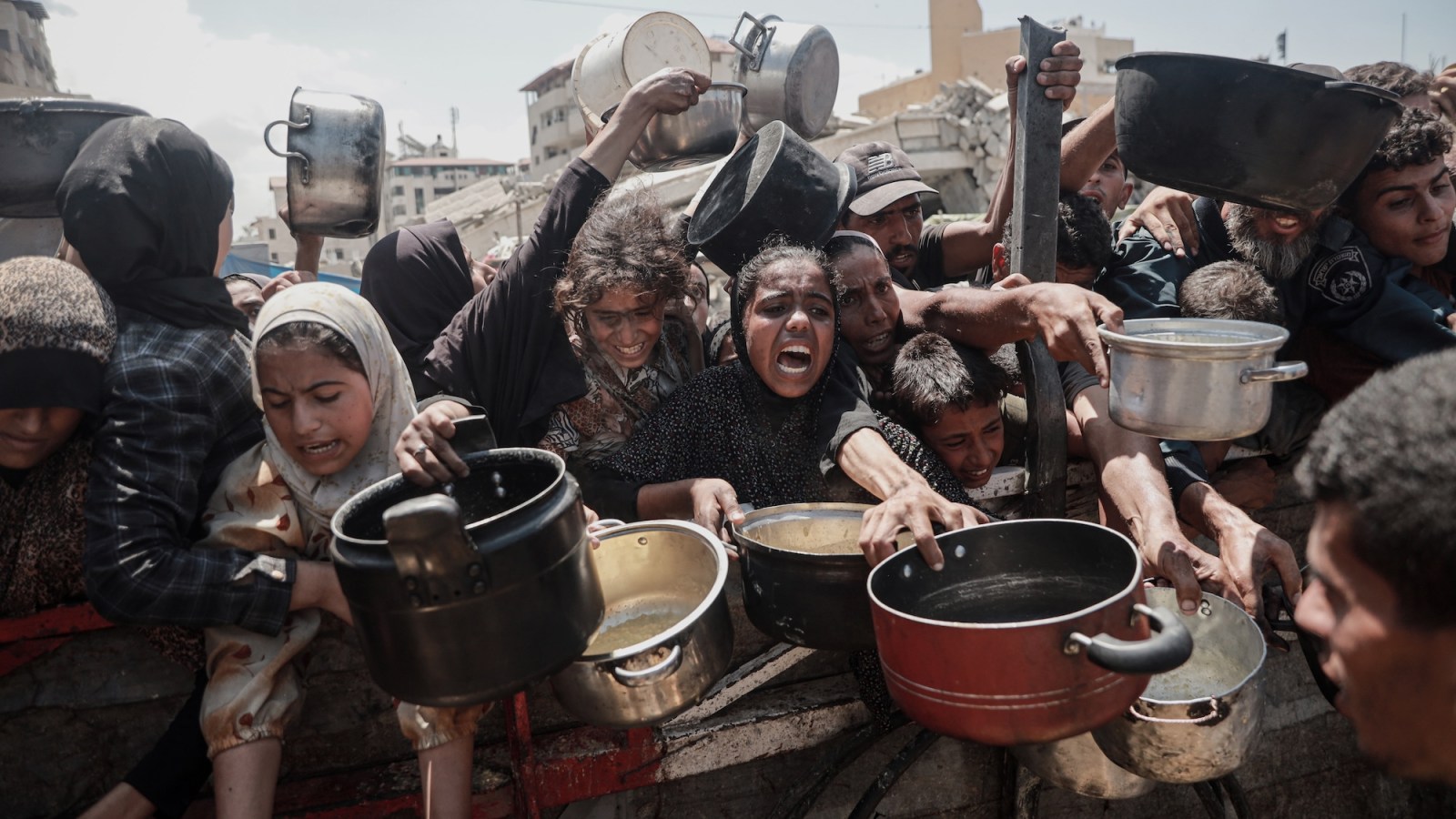Although Israel said last Sunday it would pause military activity in select areas of Gaza to allow more food aid in, humanitarian organizations have said that the amount of food entering the area is far from enough, and without additional aid, an increasing number of Palestinians will die from famine.
So far, 151 Palestinians have starved to death, with the majority dying last month alone. Experts at the Integrated Food Security Phase Classification warned days ago that the “worst-case scenario of famine is currently playing out in the Gaza Strip,” and “widespread death” will take place unless drastic and immediate actions are taken.
While the lifting of some Israeli blockades has brought more food in on trucks, those trucks are immediately surrounded on the one road they are allowed to take and do not reach U.N. warehouses to be distributed. Instead, their cargo is seized by crowds of desperate Palestinians as well as armed gangs who take the goods. While air drops of aid have resumed, the amount of food needed is much higher than what is coming in.
“Twenty-one months in, these are token gestures. They’re theatrics, they’re designed from my perspective to deflect scrutiny. We’re being blocked and delayed at every turn,” said Bushra Khalidi, the policy lead at Oxfam, told The Guardian of the new Israeli aid measures.
“Of course, a handful of trucks, a few hours of tactical pauses and raining energy bars from the sky is not going to fix irreversible harm done to an entire generation of children that have been starved and malnourished for months now,” Khalidi told The Associated Press.
Beginning in March, Israel blocked any food from crossing into Gaza for more than two months. Since then, it has allowed approximately 70 U.N. aid trucks in per day — way short of the 500-600 per day the U.N. says is necessary.
Israel has claimed that Hamas regularly steals food aid, but Israeli military officials have not been able to find any evidence of it, according to what senior Israeli military officials and two other Israelis involved in the matter told The New York Times.
Editor’s picks
Not only are Palestinians starving to death, they are being killed as they try to access food. In just two days last week, on July 30 and 31, 105 Palestinians were killed — most by the Israeli military — and another 680 were injured in attacks along food convoy routes and near Gaza Humanitarian Foundation (GHF) aid sites. The attacks occurred despite the Israeli army announcing on July 27 that it would pause military actions in western areas of Gaza at certain times “to improve humanitarian responses.”
“[The office] has no information that these Palestinians were directly participating in hostilities or posed any threat to Israeli security forces or other individuals. Each person killed or injured had been desperately struggling for survival, not only for themselves, but also for their families and dependents,” a press release from the UN Office of the High Commissioner for Human Rights said.
Trending Stories
Hundreds of other Palestinians have been killed and wounded as they sought aid this summer. The U.S.-backed GHF has received criticism for repeated violence near its food distribution sites, with more than 170 charities and non-governmental organizations calling for it to be shut down last month. According to the groups, which include Oxfam and Save the Children, the Israeli military “routinely” opens fire on Gazans looking for food assistance.
Meanwhile, ceasefire negotiations have reached another standstill as the U.S. and Israel consider a new “all or nothing” strategy to force Hamas to release all remaining Israeli hostages. Hamas, however, said it will not agree to a deal that does not recognize a Palestinian state or that forces them to disarm.
